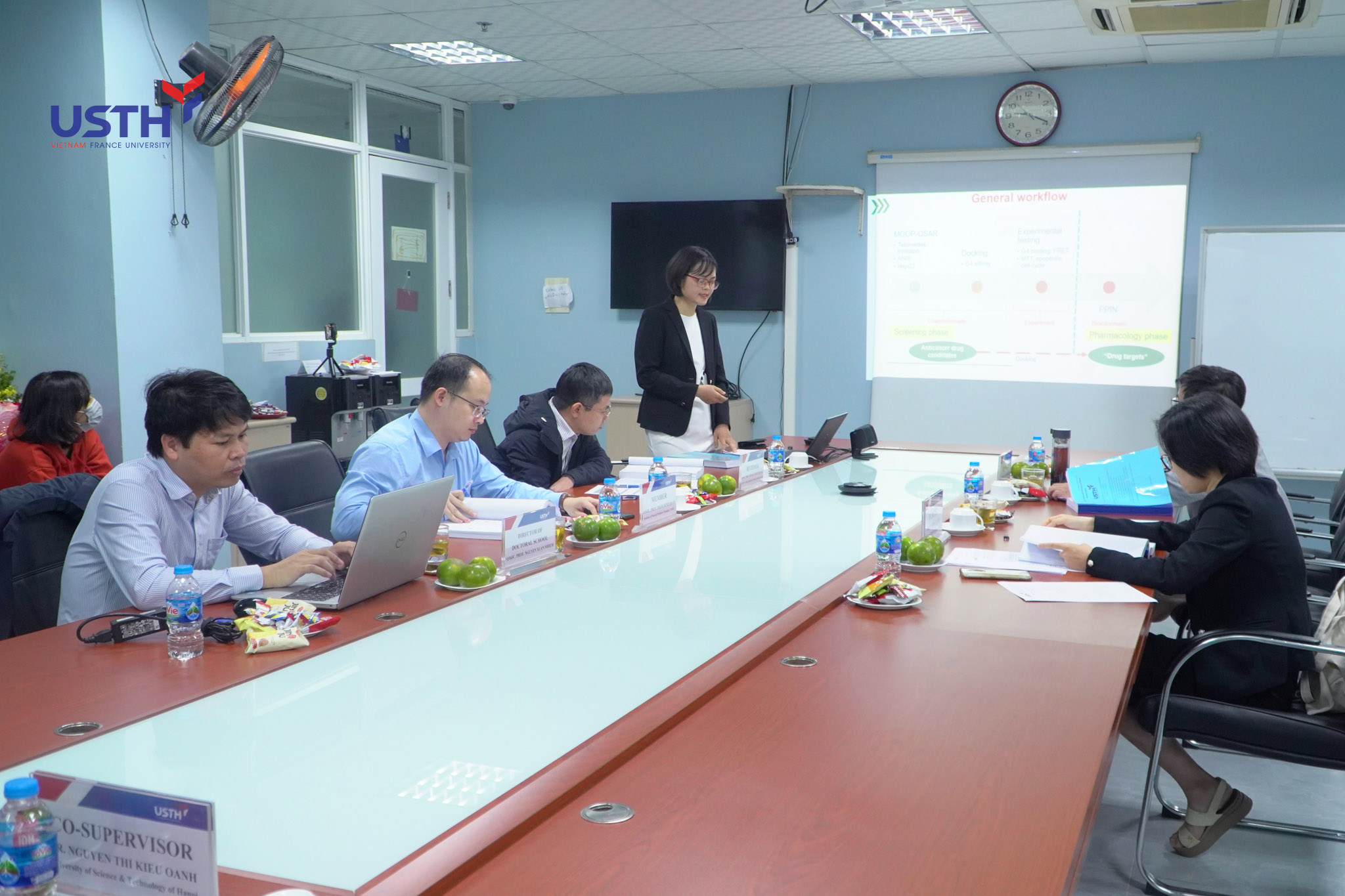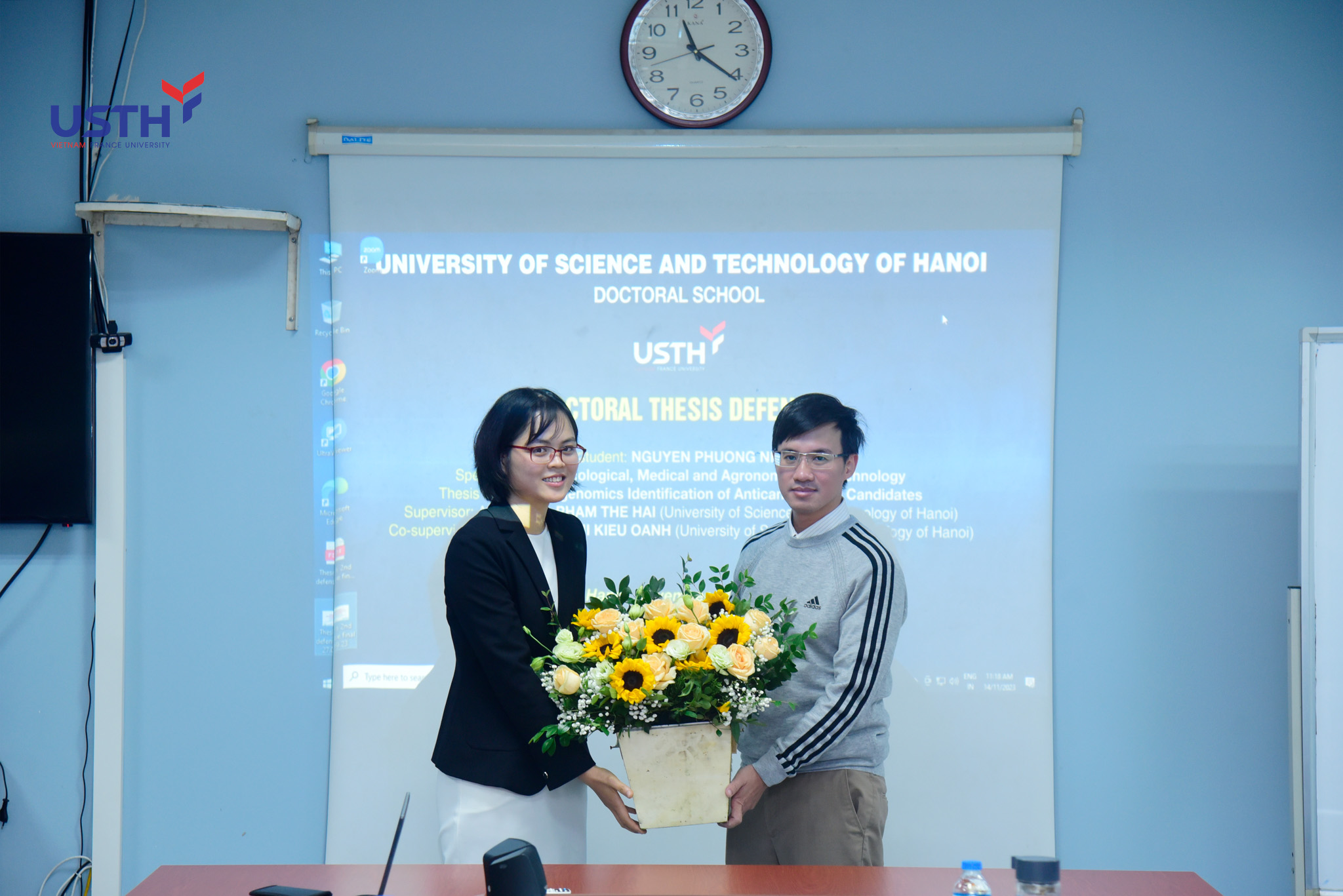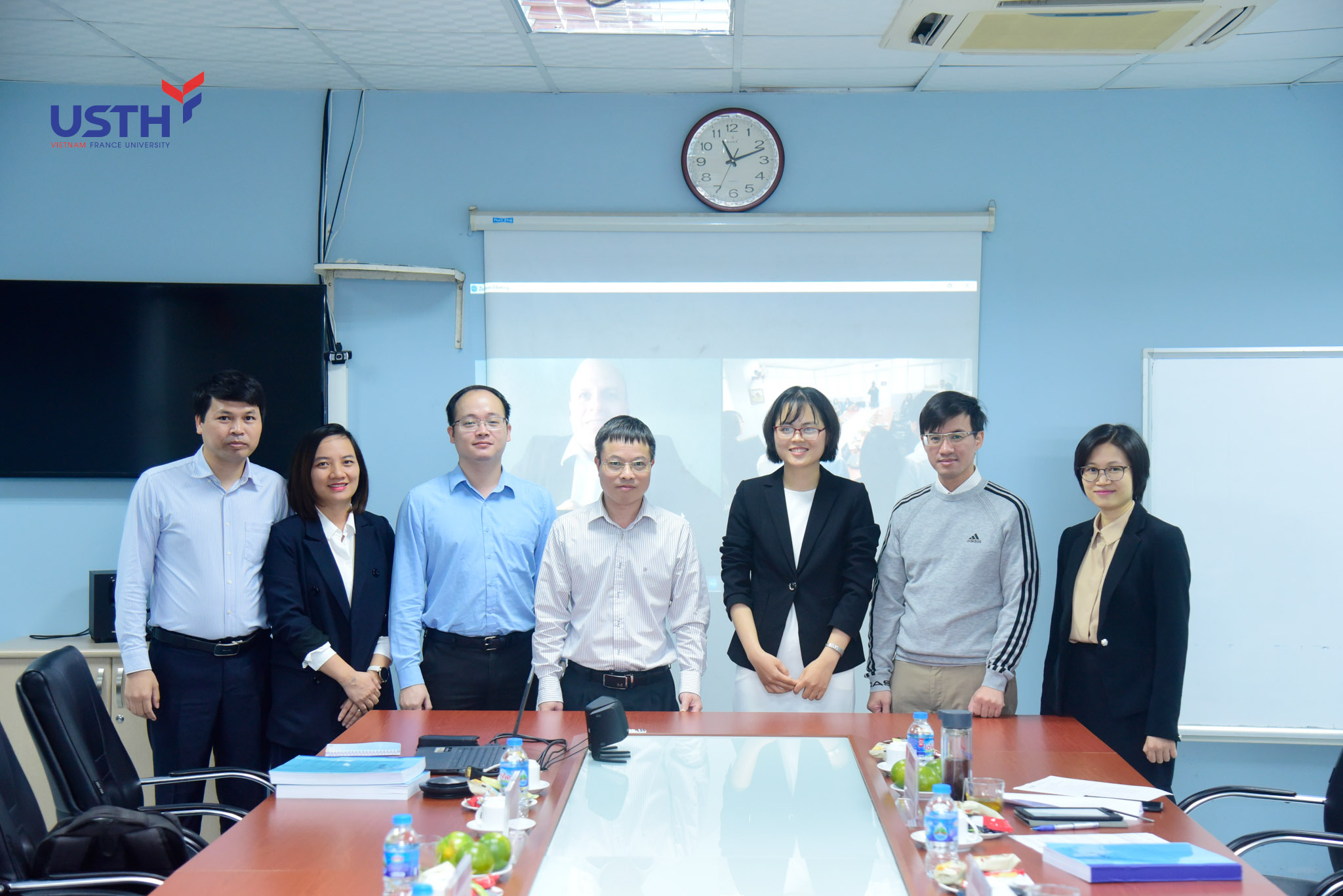On November 15th, 2023, University of Science and Technology of Hanoi (USTH) held a doctoral thesis defense for PhD student Nguyen Phuong Nhung, majoring in Pharmacological, Medical and Agronomical Biotechnology with the thesis title: “Chemometrics Identification of Anticancer Drug Candidates Targeting G-quadruplex.”
The doctoral thesis was under the supervision of Assoc. Prof. Pham The Hai and Dr. Nguyen Thi Kieu Oanh – Deputy Director, Department of Life Sciences, USTH.
The PhD thesis defense was attended by 5 members of the Thesis Jury, including:
- Assoc. Prof. Nguyen Hai Dang – Chairman, USTH.
- Dr. Gerardo Casanola Martin – Reviewer, North Dakota State University, US
- Assoc. Prof. Phuong Thien Thuong – Reviewer, Vietnam – Korean Institute of Science and Technology
- Assoc. Prof. Pham Minh Quan – Member, Institute of Natural Products Chemistry, Vietnam Academy of Science and Technology.
- Dr. Le Hong Luyen – Member, Secretary, USTH.
At the defense session, PhD student Nguyen Phuong Nhung presented the research results of her thesis to the jury.

According to PhD student Nguyen Phuong Nhung, the stabilization of G quadruplex (G4) had recently emerged as a promising trend to targeting telomere functioning for anticancer drug discovery. State of the art, the current searching for G4 stabilization compounds had mainly been based on the design of novel derivatives of known activity scaffolds or screening from natural sources by several experimental techniques. In her study, she aimed to develop a novel screening pipeline with the combination of virtual screening tools and experimental testing search for potential anticancer drugs with the ability to inhibit telomerase via G4 stabilization from commercial databases. Besides, they also attempted to predict molecular targets for G4 ligands by construction and analysis of telomere related protein-protein interaction network (PPIN). They limited the study on specific cancer types, non-small cell lung cancer (NSCLC) and liver cancer, as example cases for our drug development strategy.
The first part of the thesis focused on the development of a virtual platform to screen in large scale the potent candidates with desired properties including but not limited to telomerase inhibition, cytotoxicity of two cancer cell lines (A459 and HepG2), and G4 stabilization. For three first endpoints, a novel multi objective optimization-quantitative structure and activity relationship (MOOP – QSAR) scheme was applied with model ensemble for molecule classification and desirability score conversion for molecule ranking. By validation on a dataset with both known activity and decoy molecules, developed protocols exhibit powerful predictions referring to both early recognition (BEDROC) and enrichment ability (EF). Then, from more than 260,000 compounds of ASINEX database, top 97 molecules ranked by MOOP – QSAR were docked to different G4 conformations for final endpoint, and 31 strongest binding affinity molecules were refined.

Afterwards, the in vitro activity of 31 virtually screened substances were enlightened. Only six molecules induce significant melting temperature shift of the F21T telomeric human motif in fluorescent resonance energy transfer (FRET) assay. Out of six confirmed G4 ligands, ASN 16451954 strongly inhibits cancer cell growth of seven cancer cell lines including of lung cancer (A549), liver cancer (HepG2), gastric cancer (MKN7 and AGS), osteosarcoma (MG63), bladder cancer (5637), and leukemia (K562). Two other compounds (ASN 04366462 and BAS 01124639) only showed strong activity against A549, HepG2, MKN7, and AGS. Besides, three substances proved apoptosis induction and cell cycle arrest on A549 and HepG2 cell line by flow cytometry experiments.
The next part of her thesis rationalized their initial effort in deeper insight in the biological signaling pathways of three confirmed active compounds. By exploring telomere related PPIN of non-small cell lung cancer (NSCLC) and liver cancer which had not been studied before, they recognized possible targets of the three molecules. Results revealed multiple prominent cancer related proteins which three compounds had in silico interaction and several novel targets.

The Thesis Jury highly appreciated PhD student Nguyen Phuong Nhung for her profound and practical research. The dissertation committee met in secret and voted, with a result of 5/5 votes in favor.
Before ending the defense session, PhD student Nguyen Phương Nhung expressed her gratitude to her supervisors, lecturers and staff at USTH, family, and friends for their support and encouragement, which carried her to complete the thesis successfully.
Assoc. Prof. Nguyen Hai Dang – Vice Rector of USTH congratulated PhD student Nguyen Phuong Nhung for successfully defending her thesis and thanked Assoc. Prof. Pham The Hai and Dr. Nguyen Thi Kieu Oanh for their delicate supervision. Assoc. Prof. Nguyen Hai Dang wished PhD student Nguyen Phuong Nhung an abundant career ahead.
